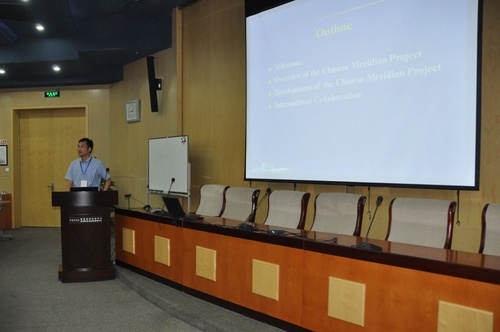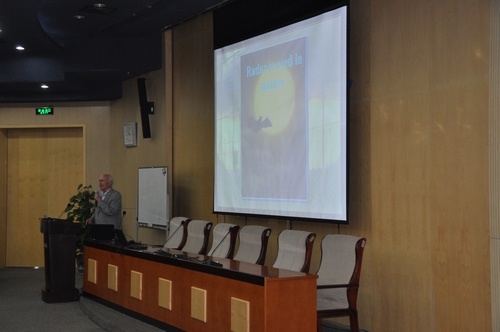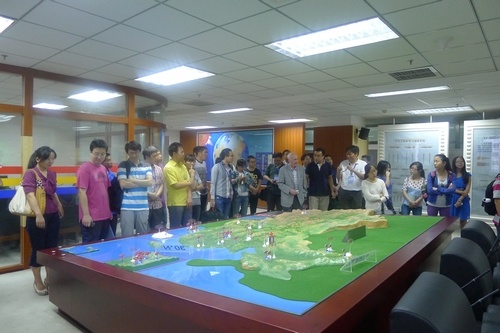The Training Course on Radars of the Meridian Project 2013 Opened at NSSC
On Sept 2, the opening ceremony of the Training Course on Radars of the Meridian Project 2013 (TCR2013) organized by National Space Science Center (NSSC), Chinese Academy of Sciences, was held in Beijing. Prof. WANG Chi, chief engineer of Meridian Project, and Prof. Jürgen R?ttger, renowned radar scientist, delivered key-note speeches.
The training course, of two weeks duration, focuses on major radars of the Meridian Project, namely the Hainan VHF COherent scatter Phased Array Radar (HCOPAR), Mesosphere-Stratosphere-Troposphere (MST) radars at Wuhan and Xianghe, and High Frequency radar (SuperDARN) at the Zhongshan station in Antarctica. For each kind of radar, the lectures will cover 4 categories from method, system, data analysis to science.
The main aim of the training course on radars is to give young researchers and students a better understanding on radar data, in a bid to build up their capability to handle real radar data.
Meridian Space Weather Monitoring Project (Meridian Project for short), a mega-project of science research on space weather monitoring proposed by several research institutes and universities in China, became fully operational in 2012. With the objectives of investigating the space weather cause-consequence chain in the solar-terrestrial space, understanding the processes of the catastrophic space weather events, and the regional characteristics of the environment above China's territory so as to help ensure the safety of space activities such as satellite operation etc., the project has set up a large-scale ground-based monitoring system composed of 15 stations along the longitude of 120°E and the latitude of 30°N.

Image 1: Prof. WANG Chi, chief engineer of the Meridian Project, delivering a talk

Image 2: Prof. Jürgen R?ttger delivering a talk

Iamge 3: Visiting the Operation Center of the Meridian Project


